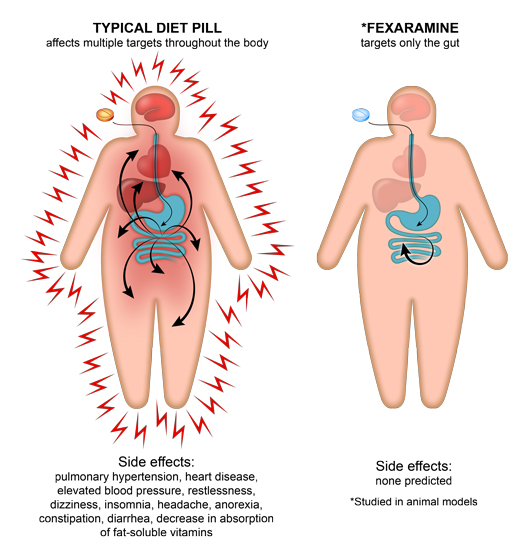
The Times recently published a story titled “Pill’s real, but meal’s imaginary”, sourced from AFP RelaxNews.
Readers of my column know that I’d welcome a safe and simple solution to obesity and overweight – and I’d be quite happy to accept a solution in the form of a pill.
The current situation
The way things are, we’re not oversupplied with slimming pills that actually deliver the goods. I am not talking about the abundance of over-the-counter pills and potions that promise the earth but only deplete your bank balance; I’m talking about thoroughly researched, scientifically sound products that are effective and safe, and help people achieve sustained weight loss.
Read: Diet pills can be deadly
Unfortunately, all the pharmaceutical slimming pills on the market except orlistat (Xenical or Alli), have had to be withdrawn because of side-effects, such as cardiovascular problems, including arrhythmias and strokes.
Consequently the entire world is waiting with bated breath for a breakthrough in this field.
Read: Consumers are being mislead about weight-loss supplements
The Salk Institute
Dr Jonas Salk who founded the Institute bearing his name, became famous for discovering a vaccine against polio, that dread disease that crippled and killed thousands of children and adults last century. As the slogan of the Institute says: “Jonas Salk knew there was more than polio to conquer. So he built an institute to do it.”
The Salk Institute for Biological Studies in La Jolla, USA, has now come up with a new diet pill that may well open the door to successful global weight loss.
According to the official media release on the Salk Institute website, an “imaginary meal tricks the body into losing weight”.
Image: Salk researchers demonstrate how fexaramine stops weight gain and burns fat in animal models. Fexaramine is only absorbed in the gut and does not go into the bloodstream, so it does not cause side effects common for typical diet pills. After additional testing, researchers believe this could lead to an effective treatment for type 2 diabetes and obesity in humans. Image: Courtesy of the Salk Institute for Biological Studies.
The study
An article reporting on a recent study conducted by researchers at the Salk Institute for Biological Studies (SIBS), published in Nature Medicine , 5 January 2015, announced that a compound called “fexaramine” tricks the body into thinking that it has eaten a meal or ingested kilojoules, and also stimulates fat burning.
The research team found that in addition to weight loss, use of the compound lead to lower cholesterol levels, better blood sugar control and less inflammation (a factor that has been identified as a trigger or marker of metabolic syndrome) in the test subjects.
Fexaramine also increased thermogenesis (fat burning) and conversion of white fat into brown fat (the latter type of fat promotes fat loss).
Read: Successful strategies for weight loss
These results are a dream come true for our obesity plagued global village. However, the one problem is that the “subjects” used in the study were rats!
We know that laboratory animals such as rats may, or may not, exhibit similar reactions to humans where metabolism is concerned. So the acid test will be to use fexaramine in humans to see if the same positive effects can be achieved.
Watch: How Fexaramine tricks mice into losing weight. Video courtesy of the Salk Institute for Biological Studies
How does it work?
Animals and people produce what is called the “farensoid X receptor (FXR)”. This is a protein that influences how the body releases bile acids from the liver into the digestive tract to digest fats and also store fats and sugars.
In humans, FXR is activated when we start eating. Expecting a hearty meal FXR will trigger the release of bile acids and will also alter blood sugar levels and stimulate fat burning to make way for the awaited influx of energy (kilocalories or kilojoules).
Until now researchers have concentrated on developing drugs that activate FXR all throughout the body, namely in the intestine, liver, kidneys and adrenal glands. Such medications, however, have the potential to lead to a variety of side-effects.
So the team at the Salk Institute for Biological Studies decided to concentrate on only switching on FXR in the intestines to see if this would produce the positive weight loss results, without the side-effects associated with absorbing the compound into the bloodstream. Their study with rats indicates that they may have come up with a winning product.
Read: The dodgy ingredients in diet pills
Promising results
According to Ronald Evans, the director of the Gene Expression Laboratory at the Salk Institute for Biological Studies, fexaramine has an advantage over most prior pharmaceutically developed diet pills because it is not absorbed into the bloodstream but remains in the intestines.
The compound should, therefore, cause fewer negative side-effects. Evans is quoted as saying: “When you eat, you have to quickly activate a series of responses all throughout the body. And the reality is that the very first responder for all this is the intestine.”
Read: Cholesterol and lipids
In the SIBS study, obese mice were given a daily fexaramine pill for five weeks. The results showed that these mice stopped gaining weight, lost fat and reduced their blood cholesterol and sugar levels when compared to control mice.
The body temperature of the treated mice also increased, which indicates that their metabolism was stimulated and they converted some of their white fat deposits into brown fat which burns energy.
Considering that up to 70% of South Africans are overweight or obese, facing a tsunami of secondary conditions such as diabetes and heart disease, as well as certain cancers, an effective diet pill would be an absolute blessing.
I hope that products such as fexaramine will be tested thoroughly and rapidly to determine if they can be safely used by humanity to reduce the burden of obesity. A positive outcome would indeed be a dream come true.
Read more:
Ask DietDoc your personal nutrition and weight-loss questions
Are you being misled by bogus weight-loss supplements?
The Kardashians and the diet pills
Tim Noakes' Eating Plan vs. balanced weight loss diets
References:
- AFP RelaxNews (2015). Pill’s real, but meal’s imaginary. The Times, p. 5. Published on 7 January 2015
- Fang S et al (2015). Intestinal FXR agonism promotes adipose tissue browning and reduces obesity and insulin resistance. Nature Medicine Published online 05 January 2015: vaop/ncurrent/full/nm.3760.html
- Salk Institute for Biological Studies (2015). “Imaginary meal” tricks the body into losing weight.




 Publications
Publications
 Partners
Partners














